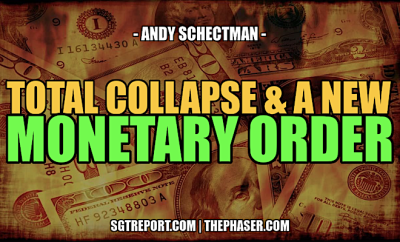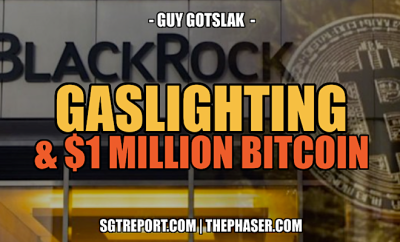Economy
The Founding Fathers Fought Against Inequality
from Washington’s Blog.com:
George Washington, Thomas Jefferson, Alexander Hamilton, John Adams and James Madison Slammed Runaway Inequality
The primary author of the Constitution – and later president – James Madison wrote:
The great object [of political parties] should be to combat the evil: 1. By establishing a political equality among all. 2. By withholding unnecessary opportunities from a few, to increase the inequality of property, by an immoderate, and especially an unmerited, accumulation of riches. 3. By the silent operation of laws, which, without violating the rights of property, reduce extreme wealth towards a state of mediocrity, and raise extreme indigence towards a state of comfort.
He also said:
Of all the enemies to public liberty war is, perhaps, the most to be dreaded, because it comprises and develops the germ of every other. War is the parent of armies; from these proceed debts and taxes; and armies, and debts, and taxes are the known instruments for bringing the many under the domination of the few. In war, too, the discretionary power of the Executive is extended; its influence in dealing out offices, honors, and emoluments is multiplied; and all the means of seducing the minds, are added to those of subduing the force, of the people. The same malignant aspect in republicanism may be traced in the inequality of fortunes, and the opportunities of fraud, growing out of a state of war, and in the degeneracy of manners and of morals engendered by both. No nation could preserve its freedom in the midst of continual warfare.
Nine months before his inauguration as America’s first president, George Washington wrote:
[America] “will not be less advantageous to the happiness of the lowest class of people, because of the equal distribution of property.”
Thomas Jefferson wrote when visiting France:
I am conscious that an equal division of property is impracticable. But the consequences of this enormous inequality producing so much misery to the bulk of mankind, legislators cannot invent too many devices for subdividing property, only taking care to let their subdivisions go hand in hand with the natural affections of the human mind. The descent of property of every kind therefore to all the children, or to all the brothers and sisters, or other relations in equal degree is a politic measure, and a practicable one. Another means of silently lessening the inequality of property is to exempt all from taxation below a certain point, and to tax the higher portions of property in geometrical progression as they rise. Whenever there is in any country, uncultivated lands and unemployed poor, it is clear that the laws of property have been so far extended as to violate natural right. The earth is given as a common stock for man to labour and live on. If, for the encouragement of industry we allow it to be appropriated, we must take care that other employment be furnished to those excluded from the appropriation. If we do not the fundamental right to labour the earth returns to the unemployed. It is too soon yet in our country to say that every man who cannot find employment but who can find uncultivated land, shall be at liberty to cultivate it, paying a moderate rent. But it is not too soon to provide by every possible means that as few as possible shall be without a little portion of land.
Alexander Hamilton argued for widespread ownership of assets, warning in 1782:
Whenever a discretionary power is lodged in any set of men over the property of their neighbors, they will abuse it.
Hamilton argued that a strong middle class was needed to become energetic customers of businesses in the entire economy.
John Adams feared that “monopolies of land” would destroy the nation and that an oligarchy arising out of inequality would manipulate voters, creating “a system of subordination to all… The capricious will of one or a very few” dominating the rest.
Adams wrote that – unless constrained – “the rich and the proud” would deploy economic and political power that “will destroy all the equality and liberty, with the consent and acclamations of the people themselves.” He therefore favored “preserving the balance of power on the side of equal liberty and public virtue (by making) … the acquisition of land easy to every member of society.”
When he was elderly, Adams wrote that the goal of the democratic government was not to help the wealthy and powerful but to achieve “the greatest happiness for the greatest number.”
It wasn’t just James Madison and John Adams. Other be-wigged early presidents of the U.S. and half the crew on Mt. Rushmore — George Washington and Thomas Jefferson — believed that U.S. democracy would work best if citizens had a broad-based ownership stake in the economy. They too feared that extreme property inequality would prevent America from fulfilling its promise.
Why Too Much Inequality Goes Against Conservative Values
More than half of American conservatives think we have too much inequality. The growing disgust among conservatives towards the runaway inequality in America is rooted in history.
After all, the Founding Fathers fought for freedom from an oppressive central bank which sucked the prosperity out of the economy, but the Federal Reserve’s policies have created inequality even worse than experienced by slaves in Colonial America in 1774.
The Founding Fathers warned against standing armies, saying that they destroy freedom. And they warned against financing wars with debt. But according to Nobel prize winning economist Joseph Stiglitz, the U.S. debt for the Iraq war could be as high as $5 trillion dollars (or $6 trillion dollarsaccording to a study by Brown University.)
And the Founding Fathers also launched the Revolutionary War because the British government wasengaging in crony capitalism (which constituted taxation without representation), instead of letting the colonists have a shot at free market competition. The modern American authorities are doing the same thing.
Likewise, the “father of free market capitalism” – Adam Smith – railed against monopolies, supported regulation of banks and the financial sector … and said that inequality should not be a taboo subject.
The well-known Greek historian Plutarch said 1,900 years ago:
An imbalance between rich and poor is the oldest and most fatal ailment of all republics.
Libertarian champion Ron Paul says that the system is rigged for the rich and against the poor and the middle class.
In fact, there are at least 6 solid conservative reasons – based upon conservative values – for reducing runaway inequality.
We’re not calling for redistributing wealth from the rich. After all, Jefferson said:
To take from one, because it is thought that his own industry and that of his fathers has acquired too much, in order to spare to others, who, or whose fathers have not exercised equal industry and skill, is to violate arbitrarily the first principle of association, —the guarantee to every one of a free exercise of his industry, & the fruits acquired by it.’
And we believe that the inequality gurus who promote redistribution are missing the bigger picture.
So what are we advocating? We’re for stopping further looting by Wall Street. As Robert Shiller said in 2009:
And it’s not like we want to level income. I’m not saying spread the wealth around, which got Obama in trouble. But I think, I would hope that this would be a time for a national consideration about policies that would focus on restraining any possible furtherincreases in inequality.
We advocate using current fraud laws to prosecute Wall Street criminality. Even without any fancy new laws … using the old ones would work just fine.
And we support clawing back ill-gotten gains from criminals under well-established fraud principles:
The government could use existing laws to force ill-gotten gains to be disgorged (see thisand this) [and] fraudulent transfers to be voided …
And if we stop bailing out the Wall Street welfare queens, the big banks would focus more on traditional lending and less on speculative casino gambling. Indeed, if we break up the big banks, it will increase the ability of smaller banks to make loans to Main Street, which will level the playing field.
We don’t even have to use government power to break up the banks … if the government just stops propping them up, they’ll collapse on their own. Indeed, many Republicans have pointed out that the big banks would fail on their own if the government stopped bailing them out.
These are all solidly conservative principles.
After all, bad government policy is responsible for the medieval, king-and-serf levels of inequality and social mobility which are destroying our economy (and see this).
It is also undermining America’s geopolitical power.
Every conservative (and liberal) should be disgusted by those results.
Postscript: Madison is also reputed to have said:
We are free today substantially but the day will come when our Republic will be an impossibility. It will be impossibility because wealth will be concentrated in the hands of a few. A republic cannot stand upon bayonets, and when that day comes, when the wealth of the nation will be in the hands of a few, then we must rely upon the wisdom of the best elements in the country to readjust the laws of the nation to the changed conditions.
However, the quote has not been authenticated in Madison’s records.
Read More @ Washington’s Blog.com

















